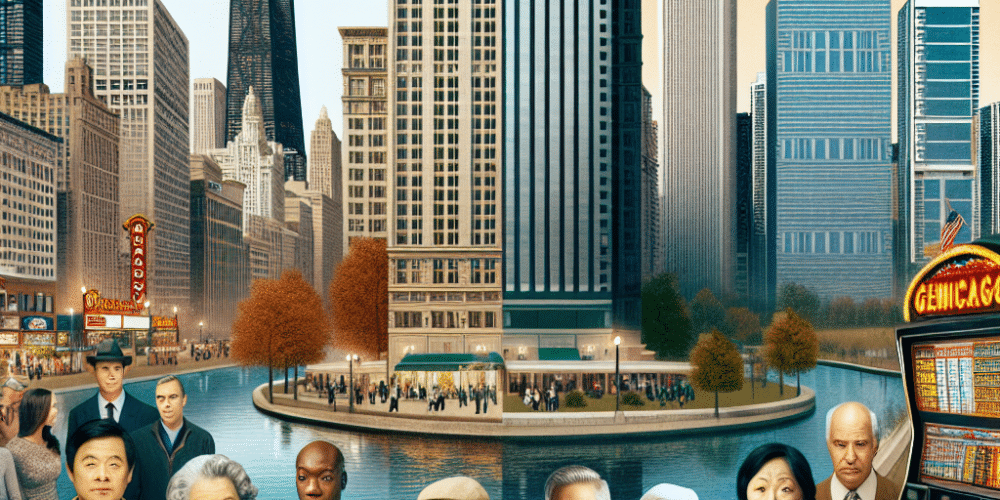Bally’s Corporation has issued a stark warning about the potential fallout from ending Chicago’s long-standing ban on video gambling. The company argues that lifting the ban could result in a significant loss of revenue and jobs for the city, making a tough economic situation even worse.
The city of Chicago, which has prohibited video gambling terminals in bars and suburban restaurants for many years, is now considering reversing this policy. This change could have a profound impact on the gambling landscape. Last month, a proposal to lift the ban was put forward by lawmakers, prompting a sharp response from Bally’s Corporation. As a major player in the Chicago gambling market, Bally’s is concerned about how this could affect their business and the city’s financial health.
Bally’s, currently operating a temporary casino at Medinah Temple while constructing a $1.7 billion permanent venue, argues that lifting the ban could cause a significant decrease in city revenues. According to the company’s estimates, the city could lose up to $74 million annually if the ban is revoked, with the potential loss of around 1,050 jobs. The company fears the increased competition from video gambling terminals, which pay lower taxes and are more widely accessible in local bars and taverns, could undermine their operations and ambitions in the area.
The introduction of video gambling terminals could shift consumer spending away from casinos, impacting tax revenues and job security. Bally’s notes that the lower tax rates on these terminals, combined with their widespread availability, could erode the financial foundation the city has with casino gaming. This is not just a matter of lost tax revenue, but also a challenge to the commitments made with the city regarding employment and community benefits.
Bally’s has also hinted that the possible regulatory changes might necessitate a renegotiation of their agreement with the city. This could affect the annual $4 million payment they make to the city and potentially reduce contributions aimed at supporting police and fire pension funds. Bally’s commitment to maintaining 3,000 jobs at its upcoming permanent casino could also be at risk if the competitive landscape changes drastically with the introduction of video gambling terminals.
On the other hand, not everyone shares Bally’s concerns. 9th Ward Alderman Anthony Beale has expressed strong support for the idea of allowing video gambling in Chicago. He argues that the city can no longer afford to ignore the potential revenue video gambling could generate. Beale points out that Chicago faces a significant budget deficit and suggests that legalizing and taxing video gambling could help alleviate some of the financial pressures.
Beale believes that regulating the estimated 3,000 illegal machines currently operating in the city could turn a financial drain into a revenue stream. He is confident that allowing some 700 bars and taverns to install video gambling terminals could bring much-needed funds to the state, even though studies suggest that the financial benefits might not exceed $10 million annually. Beale remains optimistic that the economic benefits would outweigh the potential downsides, especially for businesses still recovering from the pandemic.
This debate highlights a broader discussion about balancing economic growth with potential social impacts. The argument for video gambling focuses on its ability to generate immediate revenue and support struggling businesses. However, critics argue that the long-term implications, such as increased gambling addiction and its associated social costs, cannot be overlooked.
The situation presents a difficult choice for Chicago’s leaders: prioritize immediate financial relief or consider the broader impact on the community and existing agreements with businesses like Bally’s. As the city deliberates on this crucial decision, the potential economic and social ramifications continue to be a hot topic among stakeholders and residents.
Ultimately, the decision to lift the ban on video gambling in Chicago will need to weigh the potential short-term financial gains against long-term economic stability and community well-being. Whether the city chooses to embrace video gambling or maintain its current stance, the outcome will undoubtedly shape the economic landscape of Chicago for years to come.

















